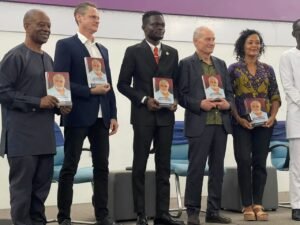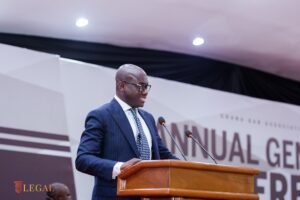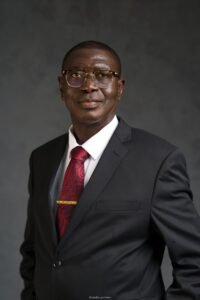
Jean Menssa, Chairperson of the Electoral Commission
By Lawson Edem Morttey
There is an ongoing debate over a single, universal definition of electoral integrity, but it can generally be defined as “any election that is based on the democratic principles of universal suffrage and political equality as reflected in international standards and agreements, and is a professional, impartial, and transparent in its preparation and administration throughout the electoral cycle.” (Kofi Annan Foundation, 2012).
When it comes to the integrity of our elections, there is no doubt that there must be a universal consensus that it is fair, devoid of undue influence on the process and reaffirms public confidence which lay legitimacy to whoever wins.
However, as a country, if we move in the direction in which an electioneering process becomes inadvertent to the policy or political objective of any administration in Ghana, then we defeat the purpose of setting up the independence of the Electoral Commission as prescribed in the Constitution. In short, we cede the integrity of elections to whims of political posturing and a corrupt intention to consolidate power.
Ghana has come a long way, from 1992 to 2020, participating in electoral democracy, because elections make a fundamental contribution to democratic governance. In the nutshell, seven election cycles have become the norm whereby political decisions are made directly by qualified citizens in Ghana. In most modern societies, democratic government must be conducted through representatives.
Elections enable voters to select leaders and to hold them accountable for their performance in office. However, accountability can be circumvented when those in charge of rendering citizens these rights to assess the performance of their representatives administer an electioneering process which undermines the principles of a free and fair elections.
New register
Following the latest proposal to wipe the voter database clean and start afresh, it begs the question, in the scheme of things: has the time finally arrived for citizens to question the competence of the Electoral Commission (EC) in conducting elections in Ghana? Or should there be a groundswell of support by citizens and international communities to probe further into the notion of independence of the EC and what it means for public confidence? Or must we as a nation concede to the idea that each electoral cycle will be preceded by re-registering of voters from scratch?
These observations though, exploring an important feature of elections in our democracy is underlined by challenges faced by the EC of Ghana, however legitimate they may be.
In spite of these challenges, the compilation of a new voters’ database/register during each electoral cycle makes me question the wisdom and intention behind such administrative decision. Is the EC as a body questioning the legitimacy of previous elections or is it an admission of incompetence? The waste of taxpayers’ monies to compile a new voter register and not refine old ones is an evidentiary basis of public waste by public institutions.
Doing the right thing
Electoral bodies all over the world exist for a reason, and the criterion for setting up Ghana’s Electoral Commission and it intended purpose don’t differ from others in the world. The constitution of Ghana spells out the role of the EC in our democratic dispensation. The EC must not depart from its core constitutional obligation.
Administrative decisions made by the commission should not be in synch with the unfounded and dangerous political objectives of the ruling party. To reassure confidence in the general public, the time is now for the EC to reassert its independence and conduct free and fair elections.
The public is exhausted by a litany of national debate on the intentions behind some of the EC’s decisions. A long protracted legal fight over the legitimacy of the 2012 election is a spectacle the Ghanaian public can no longer stomach again. Whoever wins the 2020 election must not have its legitimacy questioned. The next government should function right from the onset without legal distractions. The EC owes it a duty to Ghanaian voters to ensure they are able to hold their political parties and local representatives accountable. “Mrs EC”, do the right thing!








